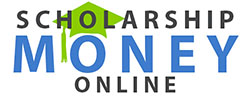On April 27, Dartmouth announced a $3 billion (yes, that’s billion with a “b”) Ivy League fundraising campaign that they’re dubbing, “The Call to Lead.” The Ivy League school’s goal is to raise that amount by 2022 in order to fund several projects. According to the college’s newspaper, “The Dartmouth”:
“The money will fund initiatives including restoring need-blind admissions for all applicants, including international ones; eliminating loans from financial aid packages; building residence halls to house 350 beds; investing in research in the Arctic, energy and cancer treatments; creating a four-year leadership program for all undergraduates; expanding the western part of campus to focus on entrepreneurship, business and design; expanding the Hood Museum of Art; and renovating the Hopkins Center for the Arts.”
Sounds great, right? But let’s put this breathtaking Ivy League fundraising goal into context. Let’s talk about Ivy League endowments.
Ivy League Endowments 101
Endowments are donations to universities that are designed to be invested in order to generate income. Some endowments have strings attached – they’re designed to fund a faculty position, for example – while others do not. But the important thing to note is that endowments add up – especially for Ivy League Schools such as Dartmouth.
According to Forbes, with its nest egg of $3.4 billion, Dartmouth ranks a relatively impoverished seventh in the endowment game. Leading the pack is Harvard ($32 billion), followed by Yale ($19.4 billion), Princeton ($17.1 billion), Columbia ($7.8 billion), University of Pennsylvania ($6.6 billion), and Cornell ($5.4 billion).
While Dartmouth’s $3.4 billion endowment is paltry compared to Harvard’s $32 billion, most universities have a policy stating that five percent of the endowment’s asset value can be spent each year. For Dartmouth, that would mean $170 million in walking around money. And, it’s important to note, endowment funds are separate from other revenue streams, such as the $70,791 it charges each student for tuition, fees, housing, and meals.
When Dollars Make a Difference
Ivy League universities are notorious for their outsized fundraising efforts and relentless pressure on alumni and other benefactors to give more and more often. (Dartmouth’s Ivy League fundraising campaign is pressuring women to ante up, focusing on convincing 100 women to each donate $1 million or more.)
In his podcast, “Revisionist History,” author Malcolm Gladwell makes the case that because of the size of Ivy League endowments, donations to those institutions are low impact. Instead, in “My Little Hundred Million,” Gladwell highlights the lasting reverberations of Hank Rowan’s $100 million donation to New Jersey’s Glassboro State University (now Rowan University). According to the New York Times obituary for Hank Rowan,
“For the college, the Rowans’ gift was transformative. Given in $10 million annual installments, it went toward financing an engineering school, endowing professorships and supporting scholarships for his company’s employees. Student enrollment began expanding, and graduate programs were eventually introduced.”
Rowan’s donation was less than Dartmouth’s annual five percent endowment expenditure. Ivy League universities may be fundraising machines, but the donors who help Dartmouth meet its $3 billion fundraising goal should know that their dollars could have made a much greater impact in smaller public colleges and universities across the nation.
Want the inside track to college? Subscribe to the Scholarship Money Online newsletter.


Leave A Comment